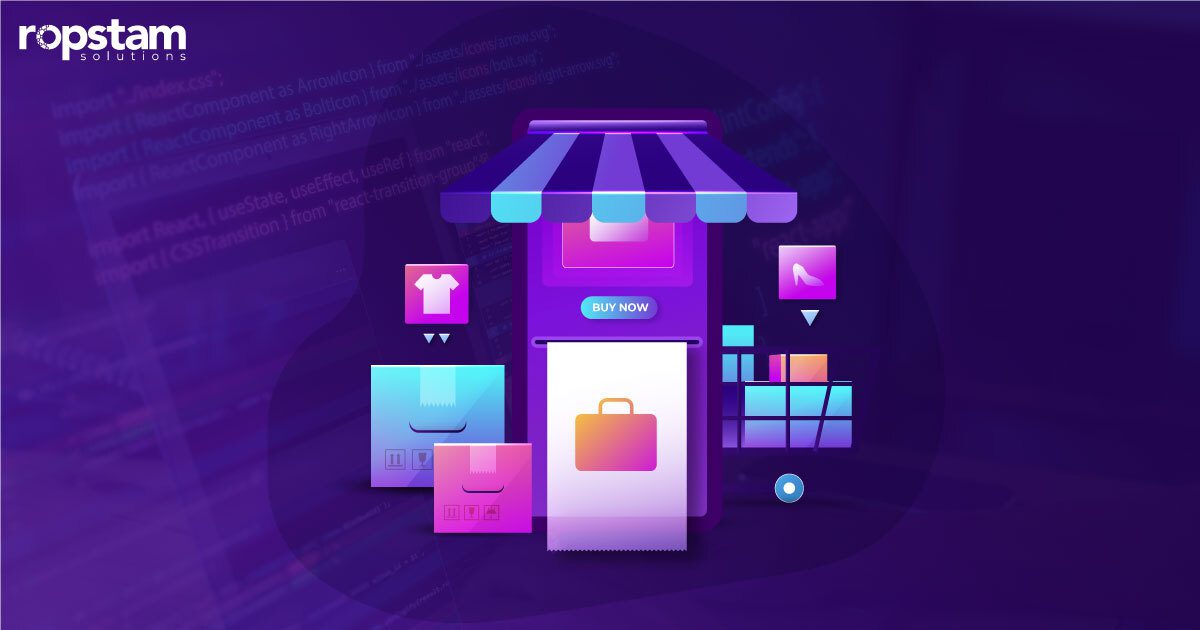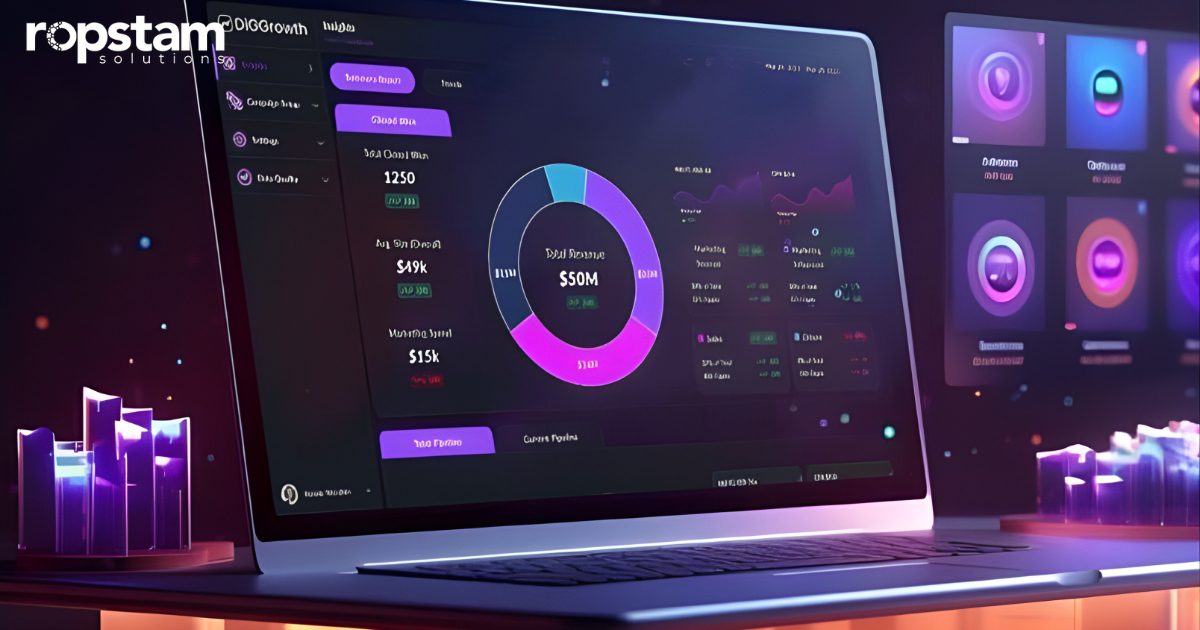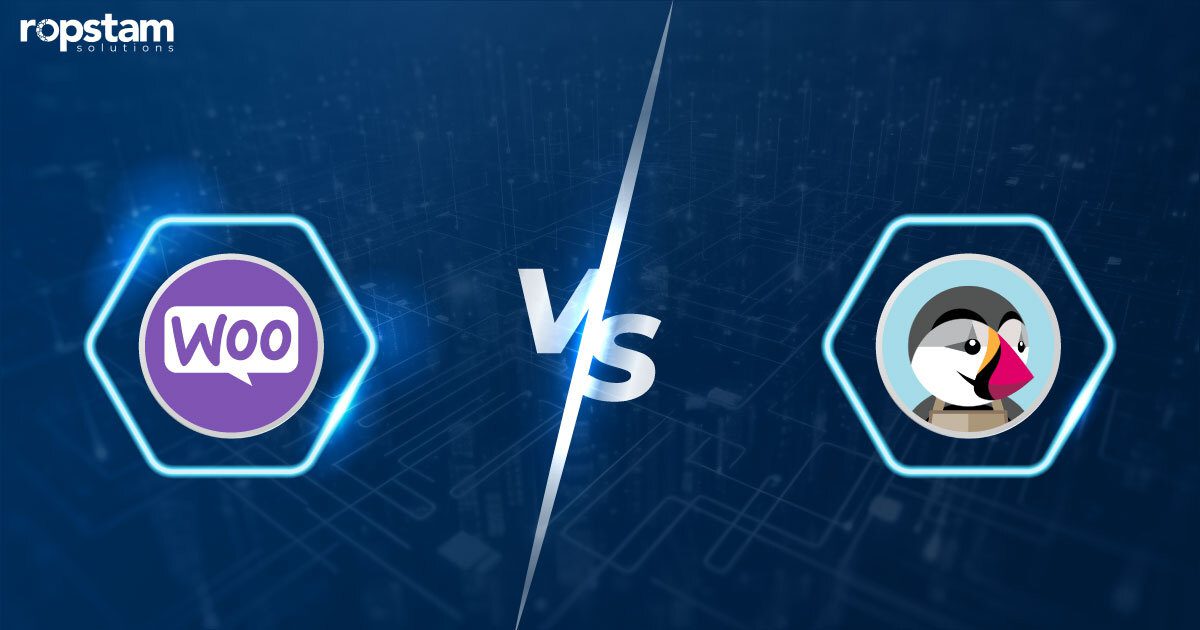With the increasing trend of online shopping, the popularity of ecommerce sites has seen an unprecedented rise. The total number of ecommerce sales exceeded the $5.2 trillion mark in 2021 and is set to rule the rooster in 2024 and beyond.
If you are a business owner looking to sell your products online, what you require is an ideal CMS platform. But with so many options available, it is easy to hit a roadblock. To help you make the right decision, here we have compiled a list of some of the best ecommerce CMS platforms.
What is an e-commerce CMS?
An e-commerce content management system (CMS) empowers businesses to create, manage, and optimize their online stores without the need for extensive coding expertise. It simplifies the e-commerce web development process, enabling even non-technical individuals to effortlessly customize every aspect of their online store, from navigation and product layouts to shopping cart settings and checkout processes.
Best e-commerce CMS platforms for online business owners
With the perfect e-commerce CMS, businesses can handle digital website content. CMSs lets website developers effortlessly build and maintain an online store that accurately reflects their brand identity and delivers an exceptional shopping experience to customers.
Additionally, such beneficial platforms often offer amazing security features, integrated payment gateways, ease in product management, and scalability options, which makes them indispensable tools for the success of e-commerce sites.
Let’s have a look at some of the top-rated e-commerce CMS platforms to make your lives easier as an online store owner:
- Shopify
- BigCommerce
- Wix
- Jumpseller
- Magento
- OpenCart
- PrestaShop
- Ecwid
- Drupal
- WooCommerce
| Name | Key Features | Pricing |
| Shopify |
|
From $29 per month |
| BigCommerce |
|
From $29.95 per month |
| Wix |
|
From $17 per month |
| Jumpseller |
|
From $21 per month |
| Magento |
|
From $22,000 per year |
| OpenCart |
|
Free |
| PrestaShop |
|
Free |
| Ecwid |
|
From $15 per month |
| Drupal |
|
Free |
| WooCommerce |
|
Free |
1. Shopify
Shopify stands as a globally recognized SaaS ecommerce platform. It is a simplistic CMS solution that offers free SSL certificates, free shipping to customers, and 24/7 customer support. Shopify is ideal for small businesses looking for an easy-to-use platform with robust features.
2. BigCommerce
BigCommerce is a user-friendly ecommerce platform known for its facile checkout customization, mobile responsiveness, and easy third-party integrations. It’s preferred by online store owners looking to scale effectively.
3. Wix
Wix is an intuitive CMS that caters to bloggers and creatives, offering 500+ design templates and requiring minimal technical expertise. If you are looking to create a simplistic and visually appealing online store or build eye-catching digital storefront experiences, Wix is a great choice for you.
4. Jumpseller
Given that Jumpseller offers an intuitive interface, automated digital invoices, and the ability to promote products on social media, this platform is considered a good fit for small to medium-sized businesses looking for a feature-rich platform.
5. Magento
Magento is a powerful ecommerce platform with drag-and-drop features, CRM, chatbot support, and support for multiple languages. It’s considered ideal for larger businesses looking for a customizable solution.
6. OpenCart
OpenCart is a highly customizable CMS with over 14,000 extensions, allowing for easy management of multiple stores and regular product updates. Not to mention that it is free of cost, meaning it is ideal for small-sized projects with a limited budget.
7. PrestaShop
PrestaShop is a self-hosted CMS ideal for tech-savvy users, offering over 4000+ extensions and an optimized shopping experience. It offers online store owners maximum control and flexibility.
8. Ecwid
Ecwid, a straightforward ecommerce CMS solution, is renowned for its simplicity and easy-to-use interface. It is a lightweight ecommerce solution that saves addresses for future shipments, monitors status constantly, and offers a customizable interface.
9. Drupal
Drupal is a powerful, SEO-friendly online store content management system with a focus on customization and flexibility. Additionally, it enables rapid content publishing and is perfect for businesses with complex content needs.
10. WooCommerce
WooCommerce is a highly customizable open source ecommerce platform with extensive community support and cheaper plugins. This is your go-to platform if you are a small-to-medium-sized business looking to craft a robust online store.
Advantages of combining e-commerce with CMS platforms
An ecommerce platform is an online shopping cart solution that facilitates product management and direct selling through your website. Some ecommerce platforms also double as content management systems (CMS), providing a user-friendly framework that manages all the backend operations of an online store.
Here, we have compiled a list of benefits for e-commerce business owners if they leverage the power of e-commerce website management platforms:
1. Unified platform
Imagine simplifying your online business operations – from content creation to order fulfillment – all from one intuitive platform. That’s the power of integrating Ecommerce with a CMS. It let’s you say goodbye to disparate systems and hello to increased efficiency.
2. Enhanced customization
Think of your online store as an extension of your brand. With a CMS, you can create a truly unique user experience (UX) and memorable shopping experience that aligns effortlessly with your brand’s aesthetic and messaging. Customize everything from the color scheme to the checkout process and improve your conversion rate.
3. Improved SEO
In the digital landscape, visibility is key. Ecommerce CMS solutions are SEO powerhouses, offering robust tools and features to optimize your ecommerce store for search engines. From meta tags to sitemaps, a CMS makes it easy to boost your online presence.
4. Easy content management
Forget the technical headaches of updating your website. With an integrated CMS, managing and refreshing your ecommerce store’s content becomes a walk in the park. Whether it’s product descriptions or blog posts, a CMS makes content marketing a cinch.
5. Scalability
Got growth plans? A CMS provides the flexibility and scalability to support your ecommerce store’s expansion. From handling surge traffic to integrating new retail sales channels, a CMS grows with your business every step of the way.
How to choose the right e-commerce CMS?
Given the pertinence of Digital commerce CMS solutions, the selection of the ideal CMS can heavily influence the success of your online business.
1. Ease of use
Is the CMS intuitive and user-friendly? Look for platforms with a low learning curve and straightforward interface. You don’t want to spend hours figuring out how to list products or process orders.
2. Customization
Does the CMS offer the flexibility to tailor your online store to match your brand’s unique vision? Consider the level of control over design, layout, and functionality.
3. Scalability
What’s the CMS’s capacity to grow with your business? Prefer to invest in a platform that can handle increased traffic, additional product lines, and future expansion without breaking a sweat.
4. Integration options
Look for platforms with robust API capabilities and compatibility with your CRM, marketing automation, and analytics platforms.
5. Cost
Of course, budget is a key factor. Consider both the upfront costs (licensing fees, setup) and ongoing expenses (hosting, support). Weigh the value of premium features against your specific needs.
Choose Ropstam Solutions for Shopify development services
In the universe of ecommerce stores garnering more and more popularity, CMS platforms play a pivotal role in optimizing and managing online stores. This article highlighted and analyzed some of the most popular CMS for e-commerce to help the readers.
Searching for an experienced Shopify team to take your ecommerce site to new heights? Look no further than Ropstam Solutions, as we boast years of experience in this field. Thanks to our impeccable record and impressive portfolio, you can trust us with your next Shopify project. Get in touch with us today, and let us enhance the conversion rate of your ecommerce site.














